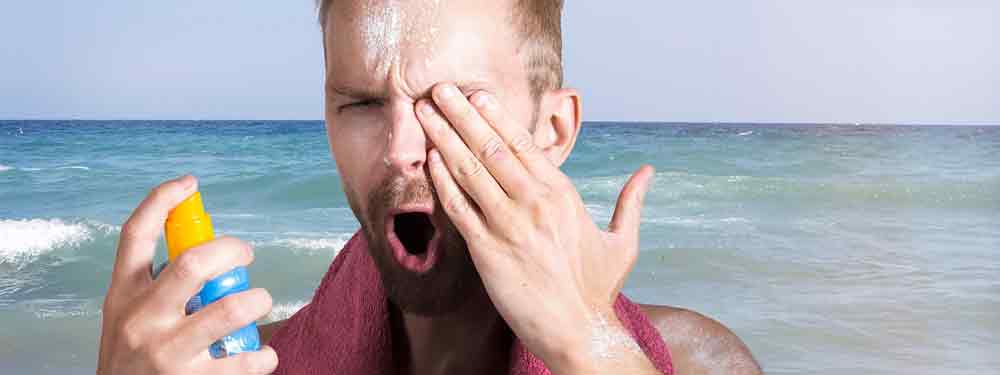I’m sure you’re aware that you should be wearing sunscreen year-round. But let’s say you didn’t venture outside much this winter, and now you’re digging your sunscreen out from the back of a drawer. In doing so, it occurs to you that this half-empty tube may be expired. But wait, does sunscreen expire?

The short answer: Yes, sunscreen does expire.
Here’s the longer version: Just like food, the ingredients in sunscreen can spoil. When that happens, they become less effective. In other words, they won’t protect you from the sun’s harmful UV rays quite as well as they once did, increasing your risk of sunburn, sun damage, and skin cancer.
This is true of both mineral and chemical formulas, by the way. With chemical sunscreens, the active ingredients oxybenzone, octinoxate, octocrylene, and octisalate gradually undergo oxidation—a chemical reaction that changes their composition. Mineral sunscreens with zinc oxide or titanium dioxide degrade over time.
Now, this likely wouldn’t have happened over the winter. Sunscreens are required by the US Food and Drug Administration (FDA) to remain at their original strength for at least three years.
But if you’re someone who likes variety and, as a result, has several open tubes and bottles of sunscreen at their disposal at any given moment, you may want to check if any of them are expired. Here’s how to do that:
Check the expiration date. Sunscreen is categorized as an over-the-counter drug but the FDA, so it will have an expiration date printed somewhere on the bottle or tube. Keep in mind, the expiration date assumes that you’ve been following the storage instructions. (More on this below.) If you haven’t done that, or if the expiration date has worn off, move on to the next step.

Check the smell and appearance. Expired sunscreen, again, like expired food, will be fairly easy to detect. It may smell off. Even if it doesn’t, check the consistency. The main indication that a bottle of sunscreen has gone bad is a watery consistency, which results from the ingredients separating.
A couple of other things to keep in mind. First, the expiration date is based on the date the product was manufactured. So, even if you stocked up over the winter, it’s worth checking the expiration dates, because your new sunscreen could have been sitting on a shelf in a warehouse somewhere for months. And yes, sunscreen can expire if the container’s never been opened.
If your sunscreen is expired, toss the bottle and buy a new one. There’s no way to tell with any certainty just how ineffective the formula is now. Better to play it safe than to save a few bucks for the time being and end up with sun damage.
Finally, a note about storing your sunscreen, since it’s a critical part of this. Easy as it is to keep it within reach, like in a beach or pool bag or the trunk of your car, heat and humidity accelerate the breakdown of sunscreen. Instead, store it in a drawer or on a shelf in a dark, climate-controlled room. If you do that, you’ll reach the bottom of the bottle long before its contents expire.



 How to Exercise and Avoid the Skin-Related Issues
How to Exercise and Avoid the Skin-Related Issues